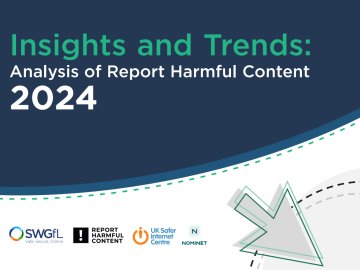Gaming has expanded over many years to offer more players a chance to experience new ways to play games and interact with each other. Online play in particular has brought a new level of engagement towards how players can socialise online; whether they are playing as a team or against each other, online play can open up more challenges and offer a sense of competitiveness.
In more recent years, skin gambling has become an increasingly popular way for people to play games with one another. Unlike standard play, Skin Gambling is a way for online players to bet between one another, usually involving in-game currencies called skins, but has extended to include vast amounts of real world currency as well. Below we explore Skin Gambling and some considerations for professionals, as well as parents and carers.
What is Skin Gambling?
Skin Gambling is the practice of players betting their skins against other players online. Depending on what the task is, players will either win the ‘pot’ or will have to forfeit their skins to the other player. From games such as Counter Strike: Global Offensive, Skin Gambling started to become very popular within the gaming community as a way to add another level of competitiveness whilst creating more opportunities to win rewards.
Skin Gambling is usually enabled through third party gambling sites online, allowing players to access their skin libraries from Steam and use them as a form of currency for betting. If a player wanted to bet a skin, it would be held in an account until the outcome of the match had played out. The skin would then be given back to a player, if they were successful.
Due to the nature of Skin Gambling, rewards are often kept as virtual currency, yet some sites allow the use of rewards to be converted back into actual money for the player.
Many Esports tournaments saw skin gambling take place between people who were watching at home, sometimes being able to bet real currency on events and matches, (similar to other sports events).
What is a Skin?
A skin is something you can win or buy within a game to cosmetically change the appearance of an in-game character. It can range from different costumes, hairstyles or appearances but most of the time, they do not affect how the game is played. Many games offer random skins as rewards for completing various tasks, whereas certain skins might be available to purchase straight away. Depending on the skin itself, it can range in quality or price, making certain skins more desirable than others.
Steam (an online gaming platform run by the company Valve) is popular amongst players who enjoy collecting skins. Real money can be spent by players to build up virtual currency, which can then be used to buy skins or other in-game purchases throughout the Steam gaming library. Much like a hub, Steam keeps a player’s currency, rewards and skins in one place.
Considerations around Skin Gambling
Online gaming is fun, but the online community that surrounds it may encourage skin gambling to make games seem more competitive for its younger players. It is important to note that skin gambling is illegal unless the site managing the transactions holds a betting license. Due to third party sites being involved, age verification processes may not be in place for younger children, and if they are, then it would heavily rely on honesty from the user about how old they are.
Although common and popular with PC gaming, Valve has been seen to take a stand against skin gambling due to the use of third party sites enabling the act of gambling and declaring it violates their terms of service and acceptable use policy. One common concern around skin gambling involves children and young people easily engaging with gambling practices. For example, one particular lawsuit towards Valve involved a 12-year-old boy becoming addicted to skin gambling and costing his parents vast amounts of money.
If you are concerned about a young person getting involved in skin gambling, it is important to raise awareness around how to keep safe, what signs to look out for and how to respond if things get out of hand:
- Monitoring and discussing financial transactions: Young people may use your credit cards to make purchases online. Make sure you encourage young people to discuss what they want to buy online before they make purchases. Consider setting an approval option on all transactions, or establish a healthy spending limit for online accounts so purchases never exceed an agreed amount. Download our checklists to find out more.
- Discuss the topic of gambling: Although available through gaming, skin gambling is still gambling and can be just as damaging if not maintained properly. Have discussions about what problems can arise when it comes to betting money (or virtual currency), how easily it can get out of hand and how ideas of winning large amounts of rewards can sometimes come at a great cost, often leaving us worse off than when we started. There’s more information available at the gambling commission website.
- Discuss the importance of money: Skins or bets can cost varying amounts of money and when faced with something desirable, putting things into perspective can be difficult. Try and get them to think critically about what they are actually getting with a purchase. Maybe offer an alternative and show why something may be not worth the cost, ‘Did you know for that money you could buy . . .’
- Encourage discussion when faced with problems: If engaged in skin gambling, problems can occur that may need your help. No matter what the problem is, always show that you are willing to listen and support them with whatever their worries are. If in a situation where you are concerned about the immediate safety of a child then phone the police.
- Ensure strong cyber-security is in place – Third party skin gambling platforms may be readily available, but it opens up questions around their security and how safe they are to use. Ensure that your cyber-security software is up to date and provides warnings towards malicious or unsecure sites. If you are unsure about this, you can visit one of our cyber security pages.
- Understand terms and conditions – Having a clear idea about what platforms do and do not allow can assist with helping to report accounts that may be violating community guidelines.
If you want to know more about Skin Gambling, you can read the research paper Loot Boxes, Gambling, and Problem Gambling Among Young People by Heather Wardle and David Zendle for more information. To find further gaming considerations, visit the SWGfL Gaming Hub.






